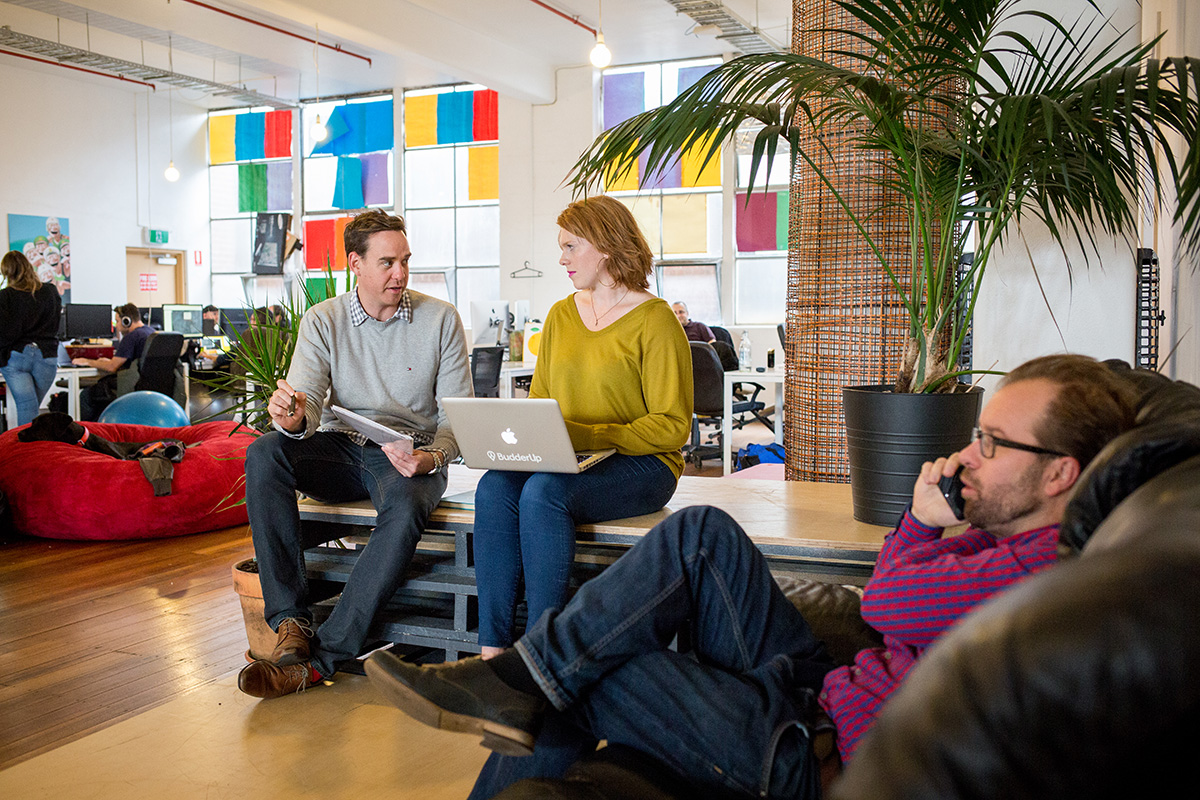The office centres of the future are about more than just flexible facilities and meeting rooms. They’re evolving into collaboration hubs where businesses network, find partners, and work together.
Similar to traditional business networking associations such as Rotary or Business Network International (BNI), some centres are deliberately targeting diverse industries.
Work Club is a members-only shared work space in Sydney. Opened in late 2014, it’s designed to get members from a broad range of industry sectors, so that members can build relationships with and also collaborate with individuals they wouldn’t ordinarily meet.
Much like a business networking club, membership is by application and starts from AUD$500 a month for basic access, with a self-contained office costing $1250 a month. Prospective members are all interviewed by Work Club’s founder, Soren Trampedach. It has been such a successful concept that there are plans to open a Melbourne Work Club later this year.
Inspire9, based on Melbourne, is Australia’s largest community-led coworking space. It recently partnered with PHW to reimagine its open floor space to create working stations that support healthy bodies and minds. Mark Balla, CEO of Inspire9, says the number one benefit of working in a co-working space is growth through shared experience.
“When business owners interact with each other in these spaces they make deep connections that allow for an authentic transfer of knowledge. This shared knowledge helps these business owners make the hundreds of decisions the need to make each day and contributes to an acceleration to market and commercialisation,” Mark says.
Inspire9 has seen multiple success stories on the back of this activity. It recently announced expansion plans for an AUD$14 million building in Footscray. “Our residents have successfully raised money, broken into large export markets, and made key hires on the back on knowledge and connections gained by coworking,” Mark says.
Inspire9’s public liaison, Kirsteene Phelan, is also part of Startup Victoria’s Female Founders Events committee. Startup Victoria recently announced a year-long partnership with the coworking spaces of Melbourne to create opportunities for female entrepreneurs to meet, connect, and learn skills that will support them as they drive high growth businesses.
Celia Newlands, Director of Central Business Associates, takes the coworking concept a step further. She plays “Business Cupid” actively using her collaboration and networking skills to make relevant introductions.
“I’m generally pretty good at putting people in touch with one another when I think they could make some great collaborative work together. More than just about people’s skills/jobs, it’s about matching people who have similar values, or similar personalities,” Celia says.
Central Business Associates has built a community “in the most authentic sense.” Members not only work in the same space, but they also have many local commonalities. These may be interests, sports, children at the same school, or on the same NFP committees. These commonalities tend to be lost when regional residents commute into a CBD and are mixed up with everyone else.
Just as networking groups have local chapters to encourage local business referrals, working in proximity with other local community members also inspires this. Central Business Associates’ plan is to help people set up similar centres in their own suburbs.
Asha Stabback from Bubdesk in Perth also notes that collaboration is a key benefit of coworking.”Coworking spaces become an incubator to explore ideas and collaborate with other like-minded people to create products and services,” she says.
“Coworking spaces offer a cost effective solution plus the ability to tap into the collective wisdom and diversity of thought of the coworking community.”
Image via Inspire9 webpage.
















